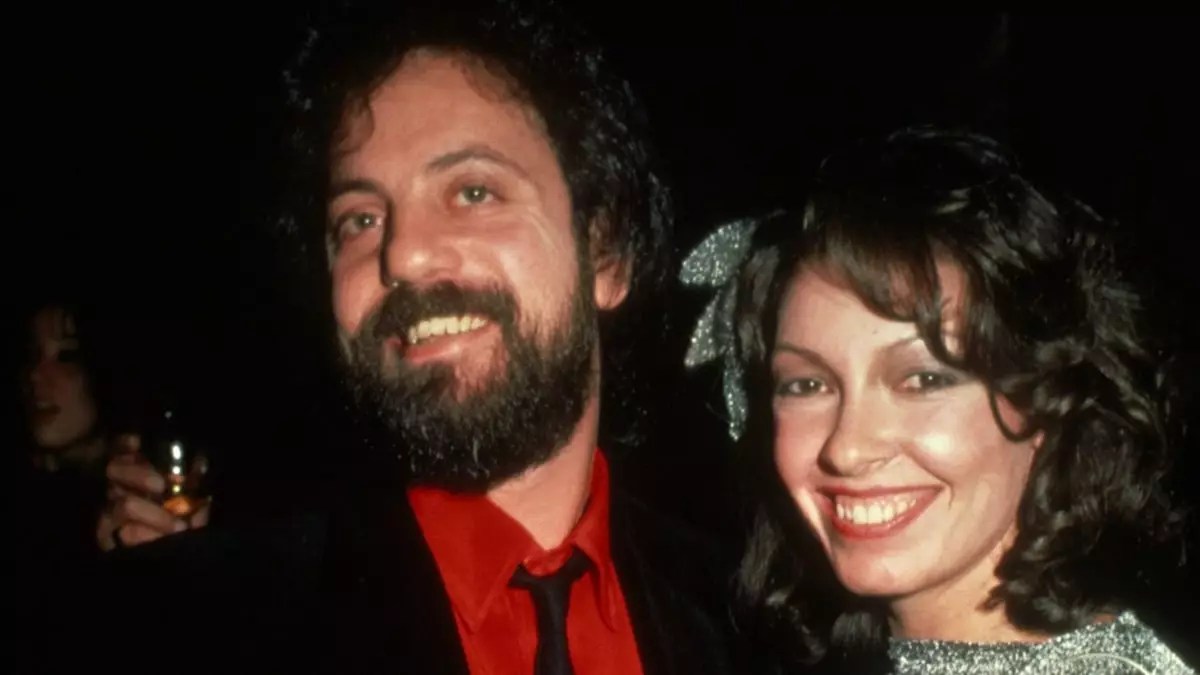In a world captivated by celebrity culture, few figures remain as enigmatic as Elizabeth Weber, the first wife of music legend Billy Joel. This week, she surprised many by stepping into the limelight at the premiere of Joel’s HBO documentary, *And So It Goes*, held at the iconic Beacon Theatre in New York City. At 82 years old, Weber’s sudden presence stirred memories of a passionate yet tumultuous eight-year marriage that defined the early life of one of America’s most cherished songwriters. Accompanied by her son, Sean Small, the audience was treated to a rare glimpse of the woman who inspired countless love songs and still carries a formidable presence.
Weber’s rare public appearance was more than just a nostalgic trip down memory lane. With her silver hair and air of quiet confidence, she captivated both onlookers and critics alike. “It was great then, it’s great whenever I think about it, and it’s great now [to revisit],” she stated, reflecting on both the past and her involvement in the documentary. Her involvement isn’t just an opportunity to share memories; it’s a way to reclaim her narrative, stepping out from the shadows of public scrutiny and entering the discourse surrounding her impactful but often misunderstood role in Billy Joel’s life.
The Intimate Portrait of Love and Turmoil
The documentary dives into the overlapping tales of struggle and creativity, highlighting how deep emotional scars fueled Joel’s musical genius. While many may view artists as solitary figures, *And So It Goes* reveals the tangled web of relationships that influenced great works. Weber’s role transcended that of a mere muse; she was Joel’s partner in creativity, guiding him through significant career decisions, including the monumental release of “Just the Way You Are.” Despite Billy’s reservations about the track—originally intended as a birthday gift for Weber—her instinct pushed it into the spotlight, leading to Grammy wins and a shift in Joel’s trajectory as an artist.
Yet, amidst the triumphs linger darker stories. Joel’s vulnerable confessions about his mental health and substance abuse are woven throughout the film, depicting a heart-wrenching narrative that resonates with many. The raw portrayal of his near-suicides and subsequent struggles provides a sobering contrast to the glamour generally associated with fame. In sharing this painful chapter, the documentary doesn’t shy away from the complexities of love and artistry. Jon Small, Joel’s former bandmate and Weber’s ex-husband, emphasizes the depth of Joel’s feelings for Elizabeth as captured in his lyrics. “You could tell from the lyrics that he was really in love with Elizabeth,” he asserts, encapsulating the bittersweet resonance of their doomed romance.
Reclaiming the Narrative
Weber’s decision to publicly engage with the documentary came as a response to years of speculation and judgment in the media. Her portrayal over the decades has often been reduced to that of a silent, shadowy figure in Joel’s storied past. Through her involvement, she aims to carve out her identity and voice—a voice that has been largely overlooked. “Susan approached me in a very personal way, and it resonated with me,” she explains, underscoring the importance of authentic connection in revisiting her life story.
The significance of such a re-emergence entails shifting the discourse tied to her identity. Elizabeth Weber is not only Billy Joel’s first wife but a unique personality who championed his career at its inception. As co-director Susan Lacy noted, Weber has faced unjust malignment in the public eye for years. The premiere offered her a chance to redefine those perceptions. Her dignified appearance, arm in arm with her son, marked a turning point, where she stepped beyond being a footnote in Billy Joel’s career to become a co-creator of that narrative.
Legacy and Longevity in the Spotlight
While much focus understandably centers on Joel’s life and accomplishments, Weber’s contributions were both pivotal and profound. Their partnership, marked by both vibrant creativity and painful heartache, shaped an era of music that continues to resonate. As Weber navigates her resurgence, questions of legacy arise: What does it mean to be remembered? For every song that celebrates love, there are deeper undercurrents that speak of loss and resilience.
Though Billy Joel was notably absent from the premiere due to health concerns, the presence of Weber served as a testament to the enduring strength of their connection, albeit transformed. As she embarks on this new chapter, one can’t help but wonder how this reclamation of voice will influence others who feel overshadowed in the narratives of the famous. Elizabeth Weber’s resurgence reminds us that behind every iconic artist lies a complex tapestry woven from the threads of love, loss, and an indomitable will to share one’s truth.







Leave a Reply